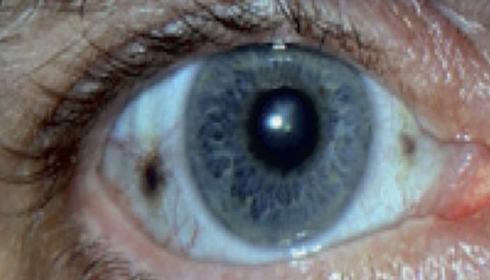
Alkaptonuria: Black Urine
Alkaptonuria (AKU) is a rare genetic condition that affects around one in every 250,000 to one million people worldwide. Despite its rarity, AKU can greatly impact a person's health and daily life. In this article, we'll dive deep into AKU, exploring its causes, symptoms, diagnosis, and available treatments.
Understanding Alkaptonuria:
AKU is caused by changes in a gene called HGD, which makes an enzyme called homogentisate 1,2-dioxygenase. This enzyme helps break down certain amino acids in the body. When someone has AKU, their body doesn't have enough of this enzyme, leading to a buildup of a substance called homogentisic acid (HGA).
Clinical Signs:
A key sign of AKU is the buildup of HGA, which can create a bluish-black pigment in tissues, a condition called ochronosis. This pigment can affect various parts of the body, like cartilage, joints, heart valves, and kidneys. Common symptoms include dark urine, joint pain, back pain, and heart problems.
Diagnosis:
Doctors usually diagnose AKU by examining a person's symptoms, doing tests on their urine to check for high levels of HGA, and possibly doing genetic testing to look for changes in the HGD gene. Imaging tests like X-rays and MRIs can also help doctors see the extent of ochronosis.
Treatment Options:
Currently, there's no cure for AKU, so treatment focuses on managing symptoms and preventing complications. This might include things like managing pain, doing physical therapy, and in severe cases, having surgery to replace damaged joints. Some people may also benefit from changes to their diet to reduce the production of HGA.
Research Progress:
Scientists are continually learning more about AKU and developing new treatments. One experimental treatment called nitisinone has shown promise in reducing HGA levels by blocking an enzyme that helps make it. Clinical trials are ongoing to see how well these treatments work and how safe they are.
Finally:
AKU is a rare but serious condition that can have a big impact on those affected. While there's no cure yet, ongoing research gives hope for better ways to diagnose and treat AKU in the future. By raising awareness, supporting research efforts, and providing care for patients and their families, we can strive to improve the lives of those living with AKU.